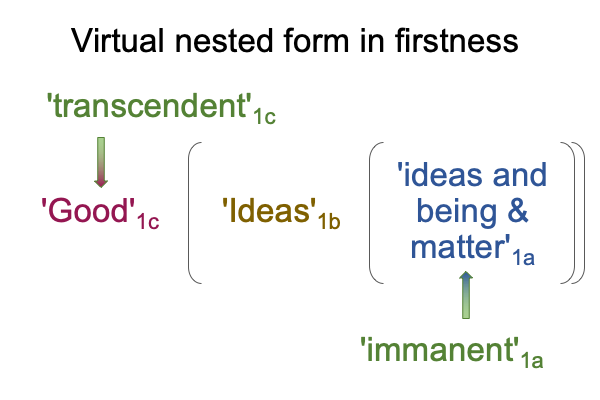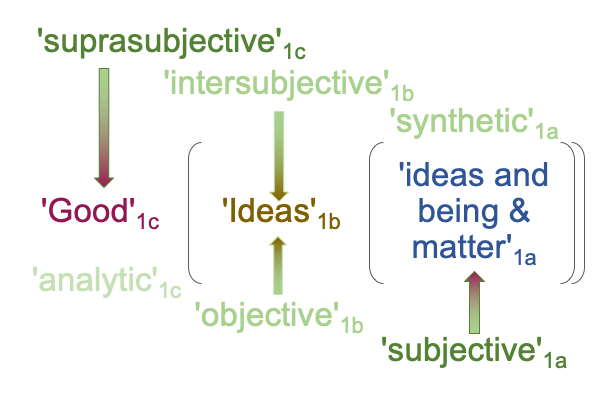0306 German idealism is routinely blamed on the late medieval Jewish philosopher Baruch Spinoza (7432-7477 U0′ AD). Many commentators regard Spinoza as the enemy of religion, morality and civil order. But, from what I hear, there is one other thing that everyone says about this philosopher. He made devilishly fine optical instruments. Perhaps, he designed the architecture of Tabaczek’s mirror, a most ingenious apparatus.
What does Spinoza do besides grind lenses?
0307 To me, Spinoza flips Plato’s top-down emanations into bottom-up contemplations.
How does Plato’s perspective-level Absolute Reason2c appear to its content-level subjects2a looking up from below?
Start with God’s creatures, impressed into matter [substantiates] form2a, expressing their soul [informed] bodies2b and glorifying the universality and the intelligibility of divine reason2c.
End with a night-time Renaissance party looking through a telescope at the moons around Jupiter.
0308 I suppose that it does matter what I think, as long as it gets me to German Idealism, which seems to stand between the content-level deep, dark well of immanence1a and the perspective-level star-studded sky of transcendence1c.
Here is a picture.

Yes, those German Idealists find themselves in quite the situation.
0309 Tabaczek uses the term, “subjectivity1a” for the content-level potential and, well, I can’t find the term for the perspective-level potential. But, it must be “suprasubjectivity1c“. We are subjective. God is above all our subjectivities. This introduces a finer division than immanence and transcendence.
Here is a diagram.

Hmmm. “Transcendent” becomes “suprasubjective”. “Immanent” becomes “subjective”.
Plus, “suprasubjective” faces “analytic” and “subjective” faces “synthetic”.
What are these German Idealists up to?
0310 Imagine that I am a German philosopher looking from the edge, into the deep well of subjectivity1a in order to catch, in the water’s reflection, a glimmer of the suprasubjective Absolute I1c. I rush to report the phenomenon to my friend, also a German philosopher, who says, “Hey, I saw the same Absolute I in my well of reflection.”
To which I reply, “How do we know that It is the same Absolute I?”
0311 Uh-oh.
My thesis confronts an antithesis.
0312 After a few mugs of beer, my friend offers a synthesis, saying, “Perhaps, the Absolute I2c posits multiple relative I(s)2b and that is what each one of us sees2a.”
The term, “pan-en-theism” (“all in God”) applies.
And, so does the term, “suprasubjective”.
